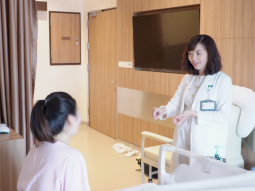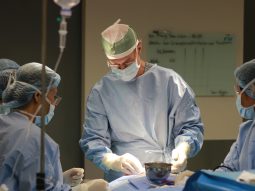A five-year-old girl from China was brought to FV Hospital with severe swelling of the eye, high fever, and a protruding left eyeball. She was at immediate risk of permanent vision loss. Thanks to rapid collaboration between FV’s specialists in Ophthalmology, Otolaryngology, Paediatrics, and Infectious Diseases, the hospital successfully performed an urgent, high-risk procedure to drain the orbital abscess, control the infection, and fully preserve the child’s sight.
From a Common Cold to the Brink of Blindness in Just a Few Days
H.W., a five-year-old Chinese girl living in Ho Chi Minh City, first developed a mild fever and headache. Assuming it to be a simple cold, her family managed her symptoms at home. Within three days, however, her left eye became severely swollen and began to protrude from the socket. Alarmed, her parents brought her urgently to FV Hospital.
“The patient’s pupillary reflex was no longer responsive, indicating severe damage. Without immediate intervention, the optic nerve could have been compressed, leading to irreversible blindness,” explained Dr Vo Le Khanh Hung, Ophthalmologist, Ophthalmology and Refractive Surgery Department at FV Hospital.
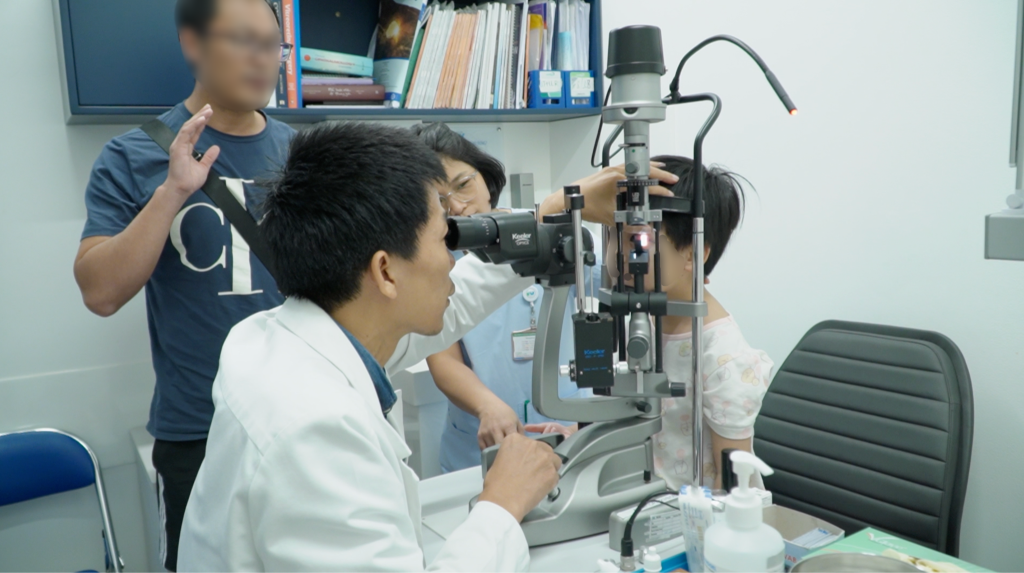
CT scans and culture testing confirmed that the patient had developed an orbital abscess caused by multi-resistant Staphylococcus aureus, originating from an underlying sinus infection. The abscess was located close to the central nervous system, creating a high risk of the infection spreading to the meninges and causing encephalitis, blindness or even death.
Four Specialities Work Together to Save the Child’s Vision
After receiving the test results and seeing how quickly the infection was progressing, FV Hospital immediately convened a multidisciplinary meeting with specialists from Ophthalmology, Otolaryngology, Paediatrics, and Infectious Diseases to agree on the optimal treatment strategy. The team concluded that relying on antibiotics alone would miss the critical window for intervention. Urgent surgical drainage was required.
“In cases of soft tissue or orbital abscess, surgical drainage is essential for survival. Without drainage, antibiotics cannot penetrate the infected area effectively, leading to prolonged and ineffective treatment,” stated Dr Bui Thi Bich Hanh, Infectious Diseases Specialist at FV Hospital.
The surgical team decided to perform orbital abscess drainage combined with sinus surgery on the same day to relieve pressure and eliminate the source of infection. Any delay risked spreading to the cavernous sinus, brain or meninges, posing a serious, life-threatening danger to the patient.
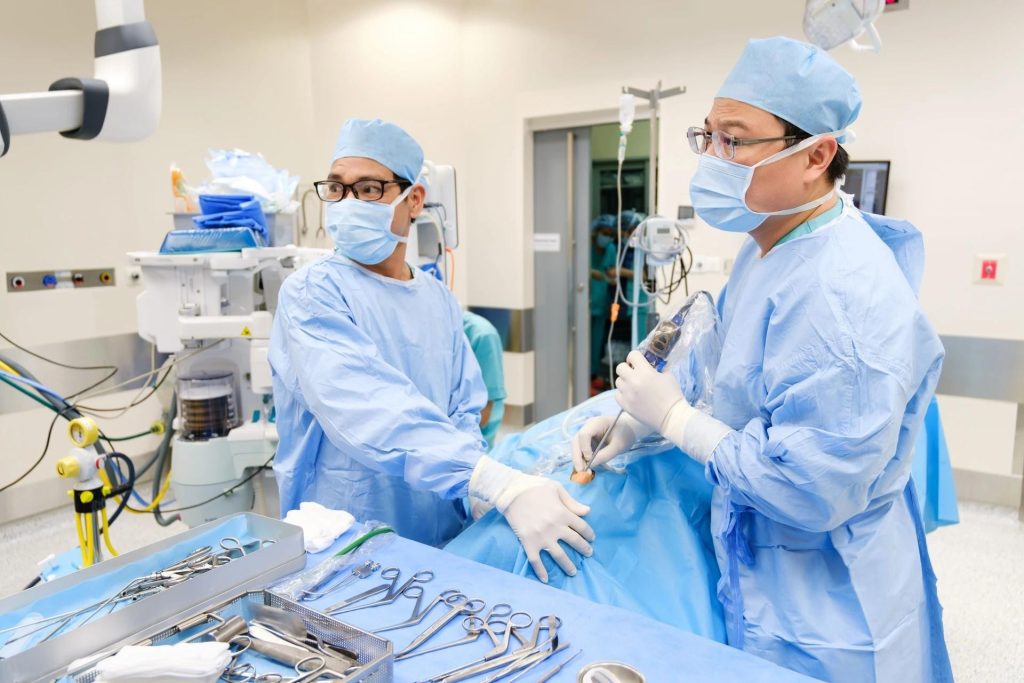
On 4 September, specialists from Ophthalmology, Otolaryngology, and Paediatric Anaesthesia performed the operation together. The ophthalmology team created an access window through the outer orbital wall to fully drain the pus and relieve pressure in the eye socket. The ENT team then cleared the left ethmoid and maxillary sinuses, creating an open pathway between the sinuses and the orbit to prevent recurrence.
“The abscess drainage site was extremely close to the brain. Therefore, a minor error could have caused meningitis or even death. Every step had to be executed with extreme precision and care,” said Dr Vo Le Khanh Hung.
The surgery lasted nearly two hours and successfully removed the pus, treating both the orbital and sinus infections simultaneously.
After surgery, H.W. received intensive care from the paediatric team while the infectious disease specialists administered a targeted antibiotic regimen. The patient was given prolonged vancomycin infusions lasting about three hours each, two to three times daily, totalling around 90 hours during the initial phase. This approach stabilised antibiotic concentrations and improved drug penetration into the infected area. Within a few days, the infection was brought under control, allowing her to transition from intravenous to oral antibiotics and outpatient follow-up.
H.W. recovered rapidly, her fever subsided, swelling reduced, and her appetite and energy returned. Remarkably, 50 percent of her vision returned within days. At a follow-up in early October, her mother, Mrs Z.R., shared: “I brought my daughter to FV on a national holiday (2 September), yet the doctors acted swiftly, explained everything clearly, and there was even a Chinese interpreter to assist us. My daughter received constant care and recovered faster than I could have imagined. I am deeply grateful!”
Parents Should Not Overlook Fever and Nasal Congestion in Children
Although rare, sinusitis with deep orbital abscess cases can progress rapidly and threaten both vision and life. Early symptoms often resemble a common cold, such as mild fever and nasal congestion, leading parents to underestimate the severity until serious, sometimes irreversible complications develop.
Vo Cong Minh, MD, PhD – Head of the Otolaryngology Department at FV Hospital, advised parents: “When a child suffers from a severe cold, persistent fever, fatigue, or swelling around the face or eyes, they should be taken to a doctor immediately. If symptoms fail to improve after a few days, parents should not wait for spontaneous recovery, as acute sinusitis can lead to serious complications or progress to chronic disease.”
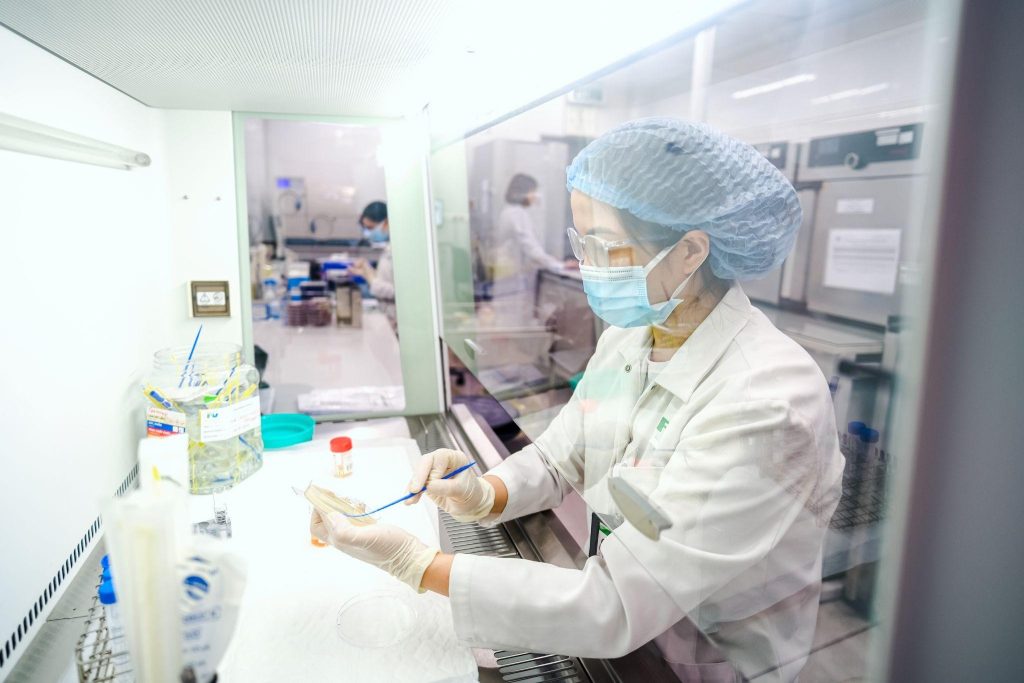
H.W. arrived at FV Hospital in a severe condition. The hospital’s laboratory team moved quickly, conducting targeted tests that identified the exact cause of the infection. Most importantly, seamless collaboration across FV’s multidisciplinary specialists delivered timely infection control, preservation of the eyeball, and full restoration of the child’s vision.
For more information about sinusitis or orbital abscess complications, or to book an appointment, please visit FV Hospital, 6 Nguyen Luong Bang Street, Tan My Ward (formerly District 7), Ho Chi Minh City, or call (028) 35 11 33 33.

 Vi
Vi 

